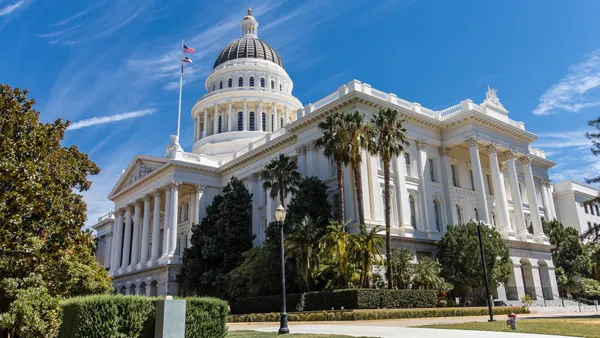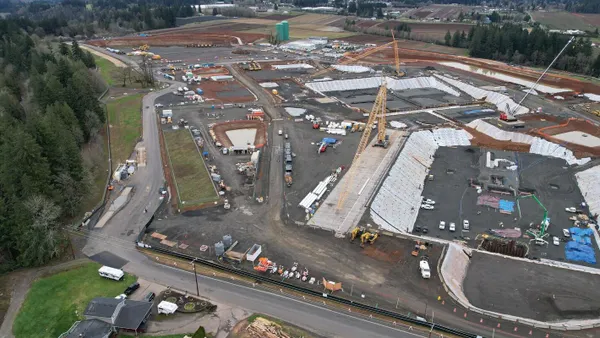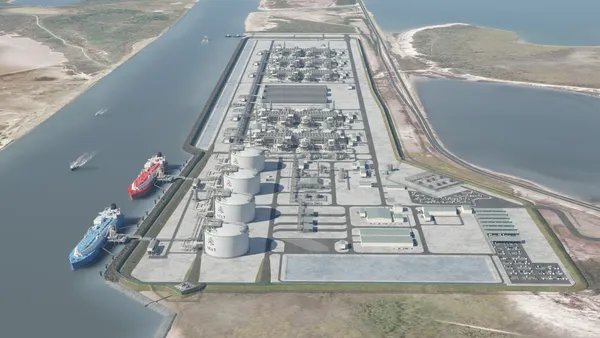Dive Brief:
- California Department of Transportation (Caltrans) officials say they are exploring the possibility of taxing drivers by miles traveled to help generate road construction revenue, according to The Sacramento Bee. Earlier this year, the state approved vehicle fees and a state gas tax hike to foot California's $52 billion infrastructure plan.
- As part of the California Road Charge Pilot Program study, Caltrans will gather information on odometer-based, point-of-sale technology that would track how far drivers have traveled since they last filled up their vehicle with gasoline or stopped in at an electric vehicle charging station. Caltrans said it has already successfully completed a nine-month, 5,000-driver experiment in which volunteers agreed to test a device that tracked their mileage and sent them mock per-mile invoices each month.
- Caltrans said the earliest they could implement such a system would be 2025, but some state lawmakers are already pushing back against the idea, saying that California has enough construction funding lined up.
Dive Insight:
The uptick in hybrid and electric vehicle use has pushed California and other states to revisit the ways in which they can draw a larger contribution from drivers who are able to reduce their gas usage.
The Washington State Transportation Commission in September announced that it would test simulated mileage fees similar to the Caltrans pilot program. The state is grappling with how to bridge the gap between a projected 2.6% increase in construction costs and growth in gas tax revenue of less than 1% over the course of next year. Oregon is also trying out a per-mile fee system with a limited number of drivers. Those participating in the program pay 1.5 cents for every mile they drive and then earn a credit toward the state fuel tax.
This summer, the I-95 Corridor Coalition — whose members include transit agencies and federal, state and local transportation departments — announced that it would begin a three-month, 50-vehicle pilot program next year in Pennsylvania and Delaware to determine whether a per-mile system would be feasible on a national scale. CH2M Hill will oversee the program.
In its 2014 report, American Association of State Highway and Transportation Officials examined possible funding mechanisms for surface transportation in the U.S. The report found that a per-mile fee had the potential to bring in a large amount of revenue, was sustainable and would lead to system efficiencies. Still, the fee collection system could see a great deal of pushback over privacy issues.













